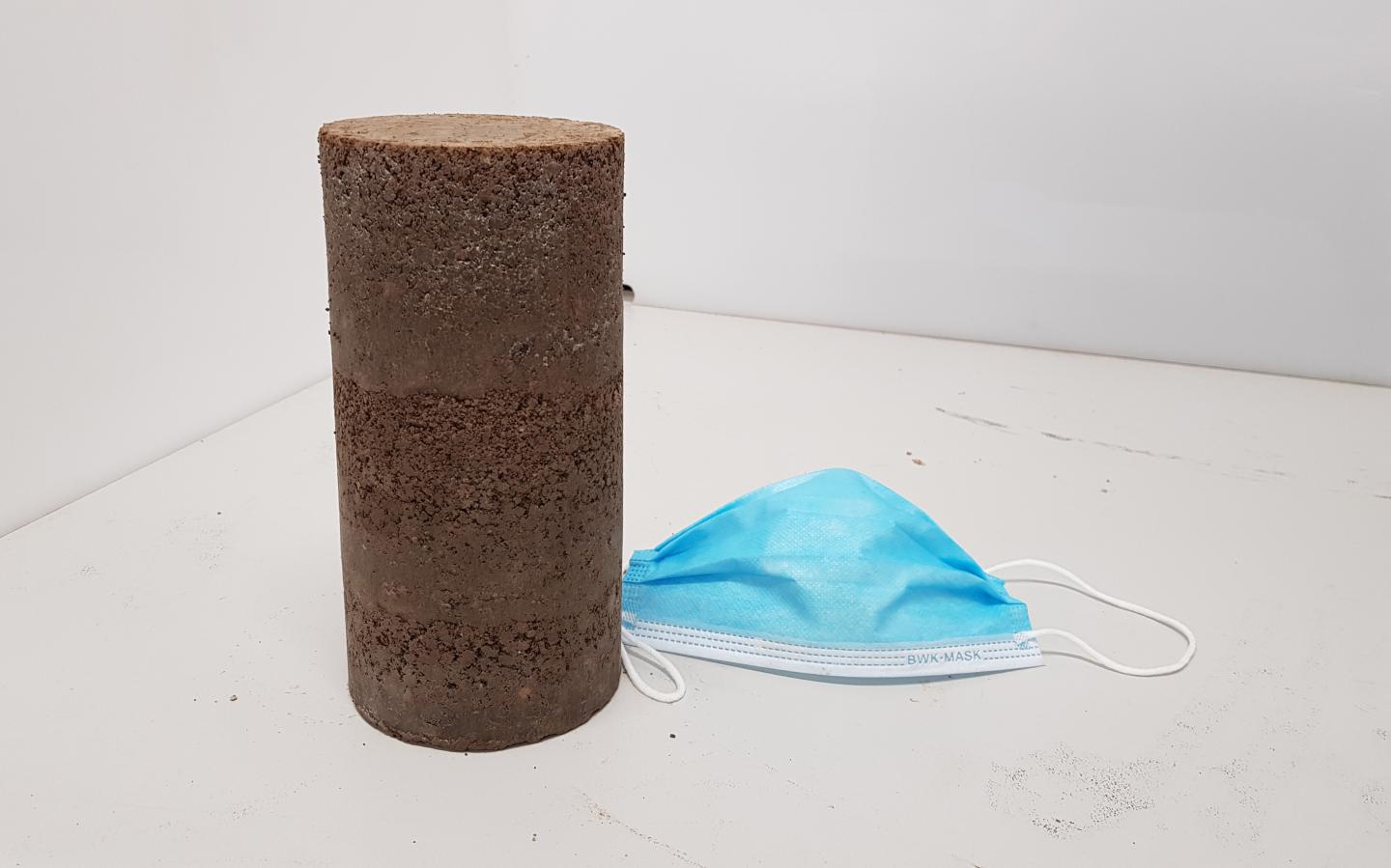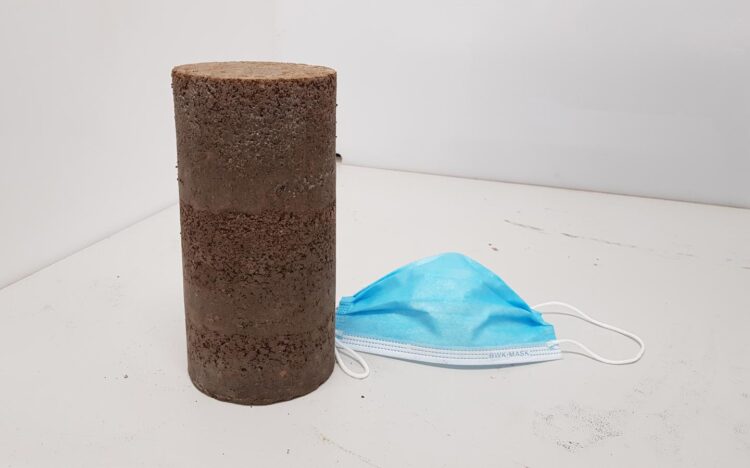Circular economy approach to PPE waste aims to cut tonnes of rubbish going to landfill

Credit: RMIT University
Researchers have shown how disposable face masks could be recycled to make roads, in a circular economy solution to pandemic-generated waste.
Their study shows that using the recycled face mask material to make just one kilometre of a two-lane road would use up about 3 million masks, preventing 93 tonnes of waste from going to landfill.
Developed by researchers at RMIT University in Melbourne, Australia, the new road-making material is a mix of shredded single-use face masks and processed building rubble designed to meet civil engineering safety standards.
Analysis shows the face masks help to add stiffness and strength to the final product, designed to be used for base layers of roads and pavements.
The study published in the journal Science of the Total Environment is the first to investigate potential civil construction applications of disposable surgical face masks.
The use of personal protective equipment (PPE) has increased dramatically during the COVID-19 pandemic, with an estimated 6.8 billion disposable face masks being used across the globe each day.
First author Dr Mohammad Saberian said multidisciplinary and collaborative approaches were now needed to tackle the environmental impact of COVID-19, particularly the risks associated with the disposal of used PPE.
“This initial study looked at the feasibility of recycling single-use face masks into roads and we were thrilled to find it not only works, but also delivers real engineering benefits,” Saberian said.
“We hope this opens the door for further research, to work through ways of managing health and safety risks at scale and investigate whether other types of PPE would also be suitable for recycling.”
Making roads with masks
Roads are made of four layers: subgrade, base, sub-base and asphalt on top. All the layers must be both strong and flexible to withstand the pressures of heavy vehicles and prevent cracking.
Processed building rubble – known as recycled concrete aggregate (RCA) – can potentially be used on its own for the three base layers.
But the researchers found adding shredded face masks to RCA enhances the material while simultaneously addressing environmental challenges on two fronts: PPE disposal and construction waste.
Construction, renovation and demolition account for about half the waste produced annually worldwide, and in Australia, about 3.15 million tons of RCA is added to stockpiles each year rather than being reused.
The study identified an optimal mixture – 1% shredded face masks to 99% RCA – that delivers on strength while maintaining good cohesion between the two materials.
The mixture performs well when tested for stress, acid and water resistance, as well as strength, deformation and dynamic properties, meeting all the relevant civil engineering specifications.
While the experimental study was conducted with a small amount of unused surgical face masks, other research has investigated effective methods for disinfecting and sterilising used masks.
A comprehensive review of disinfection technologies found 99.9% of viruses could be killed with the simple “microwave method”, where masks are sprayed with an antiseptic solution then microwaved for one minute.
In related work, the RMIT researchers have also investigated the use of shredded disposable face masks as an aggregate material for making concrete, with promising preliminary findings.
Professor Jie Li leads the RMIT School of Engineering research team, which focuses on recycling and reusing waste materials for civil construction.
Li said the team was inspired to look at the feasibility of blending face masks into construction materials after seeing so many discarded masks littering their local streets.
“We know that even if these masks are disposed of properly, they will go to landfill or they’ll be incinerated,” he said.
“The COVID-19 pandemic has not only created a global health and economic crisis but has also had dramatic effects on the environment.
“If we can bring circular economy thinking to this massive waste problem, we can develop the smart and sustainable solutions we need.”
###
‘Repurposing of COVID-19 single-use face masks for pavements base/subbase’, with co-authors RMIT Indigenous Pre-Doctoral Research Fellow Shannon Kilmartin-Lynch and Research Assistant Mahdi Boroujeni, is published in Science of the Total Environment (DOI: 10.1016/j.scitotenv.2021.145527).
Media Contact
Gosia Kaszubska
[email protected]
Related Journal Article
http://dx.





